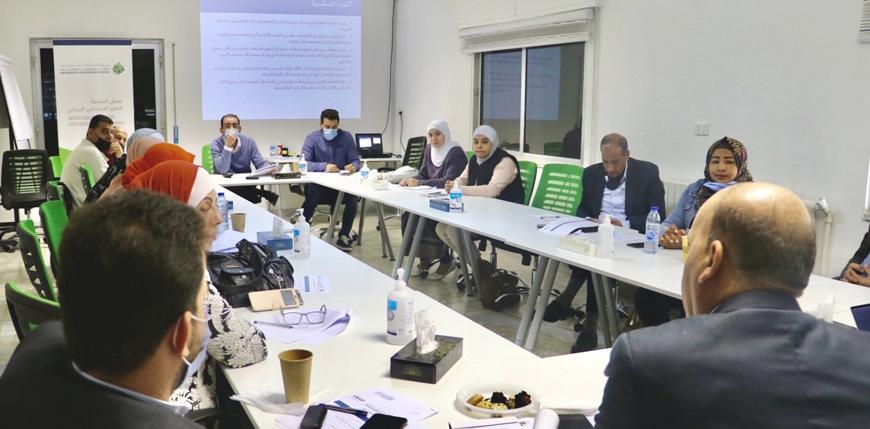You are here
Lawyers Without Borders report calls for reviewing legislation relating to CSOs
By Mays Ibrahim Mustafa - Aug 14,2023 - Last updated at Aug 14,2023
AMMAN — A recent report prepared by Lawyers Without Borders (LWB), a local NGO, is calling for reviewing legislation related to establishing and joining societies in Jordan.
The report was launched by LWB last week, under the title “Civil Society is an Opportunity for Jordan”.
At the time of preparing the report, the number of registered societies in Jordan totalled 6,647. It showed that 326 societies were dissolved in 2022, compared with 179 in 2021, 227 in 2020, 171 in 2019 and 275 in 2018.
The report also presented the findings of a survey conducted with the participation of a representative sample of societies in Jordan.
It revealed that 64 per cent of respondents said that they faced difficulties or complications in banking procedures related to their society, and 90.4 per cent indicated that procedures related to obtaining funding are complicated.
Moreover, 62.3 per cent of respondents answered no to the question: “Has the government ever supported your society financially? according to the report.
It also showed that 90.6 per cent of those surveyed agreed that the Jordanian Law on Societies needs to be amended, and 52.9 per cent held the view that societies in Jordan are tightly controlled.
This report is part of a project implemented by LWB to enhance the legal environment for civil society organisations (CSOs), according to a statement by LWB-Jordan.
In an interview with The Jordan Times, Director of Dibeen Association for Environmental Development Hala Murad noted that CSOs play an integral role in social, political and economic development activities.
CSOs perform various humanitarian functions, including advocating for and defending the rights of citizens or delivering services to underserved communities. They also play an important role in enhancing transparency and good governance through monitoring government policies and actions, said Murad.
She added that CSOs aim to complement and support the efforts of government institutions in promoting the implementation of national plans and strategies, in the public’s interest.
However, one of the main challenges faced by CSOs in Jordan is that many government institutions “don’t understand their role and importance”, dismissing them as opposition groups that merely criticise and obstruct their work, she continued.
There are also challenges related to acquiring funding in addition to the high costs impeding CSOs’ access to justice, according to Murad.
She explained that “bureaucratic” procedures involved in gaining approval for funding lead to extremely long waiting periods, and reasons aren’t provided for declined funding requests.
Murad stressed that cooperation between the government and civil society organisations in all their forms is the only way to chart pathways towards sustainable development and drive social, political and economic reforms.
Director of the Phenix Centre for Economics and Informatics Studies (PCEIS) Ahmad Awad agreed that civil society is an important component of sustainable development.
However, he described the legal framework under which civil society organisations operate in Jordan as “restrictive” and “disabling”. For example, obtaining funding requires the approval of the Cabinet, according to Awad.
He pointed out that it’s necessary to expand the space for civil society, and ensure that CSOs enjoy enough independence and autonomy to be able to perform their roles “effectively” and “meaningfully” to bring about positive changes.
The report’s recommendations included reviewing legislation related to establishing and joining societies, conducting nationwide consultations with the participation of the concerned parties, and developing a national plan for establishing partnerships between the public sector and civil society.
It also suggested enacting legislation that ensures societies’ right to receive local and foreign support and identifies standards for transparency and disclosure. Moreover, it proposed providing them with access to free of charge litigation services, considering that they are voluntary not-for-profit entities.
Other recommendations included enacting legislation that guarantees societies’ right to hold events and activities without bureaucratic constraints, and their right to independence in managing their internal affairs.
Related Articles
AMMAN – Civil society organisations (CSOs) representatives and government officials met on Thursday to reach an agreement on laws governing
AMMAN — During a panel discussion for the Coordination Committee for Civil Society Organisations, Himam, members of the panel addressed vari
AMMAN — Every year since the Arab Spring, the Information and Research Centre – King Hussein Foundation (IRCKHF) has carried out the Jordan















